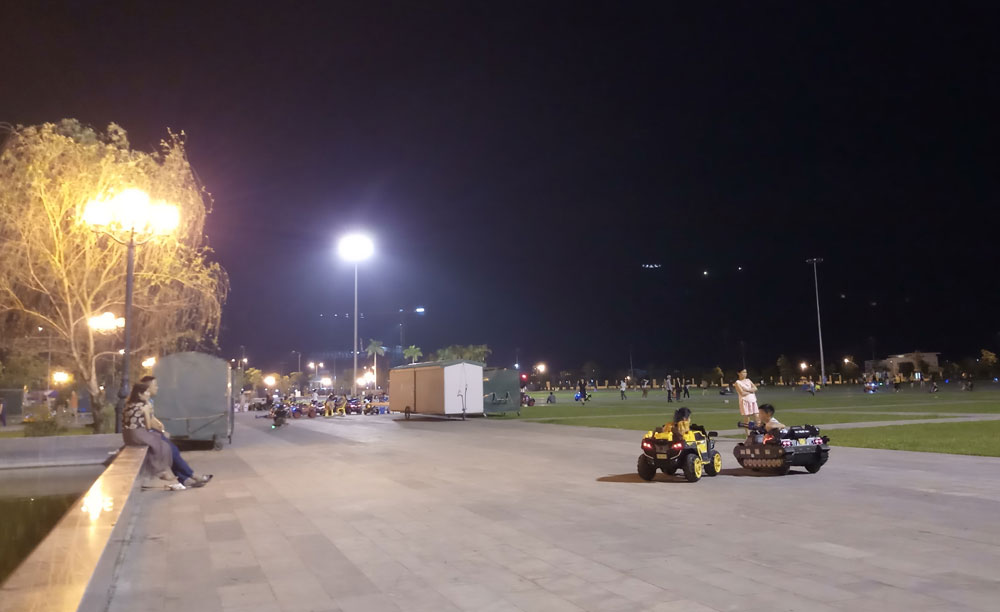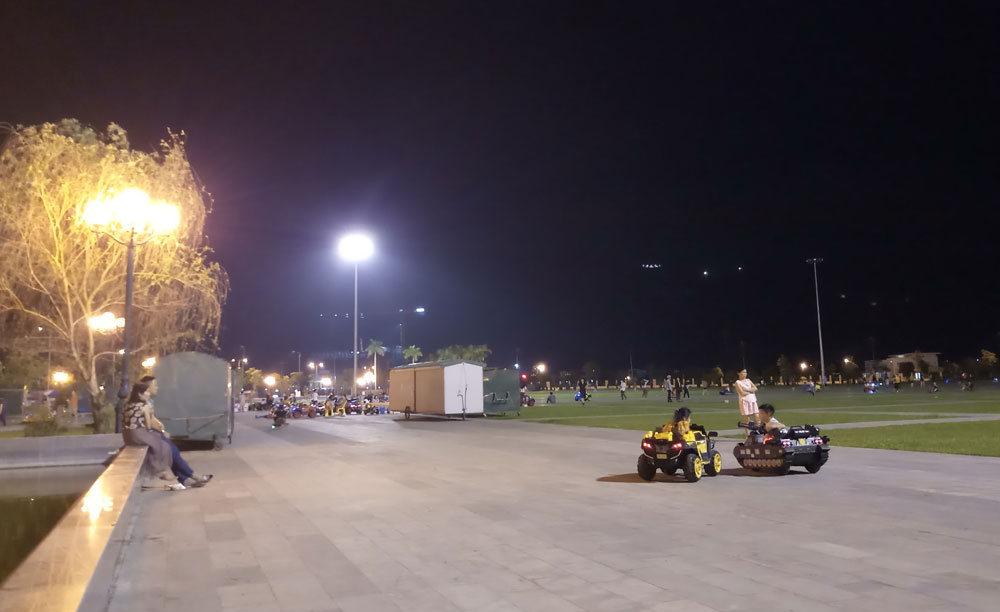
(HBO) - Inaugurated in 2016, Hoa Binh square in Hoa Binh city of the province of the same name has become a favourite playground of both children and adults. Many people come to the site at dusk and in the evening to jog, ride bicycles and stroll. Youngsters sometimes play music for dancing and hip hop practice, livening up the atmosphere.
 Hoa Binh square
becomes a favourite playground of children.
Hoa Binh square
becomes a favourite playground of children.
The square,
also known as Quynh Lam multi-purpose complex, was constructed to mark 130
years of the province’s establishment and 25 years of its re-establishment.
Recalling
the period when the complex was being built, an architect took part in the
project said it is a construction work of political, architectural and cultural
significance, creating a highlight for Hoa Binh city’s urban landscape. It
bears both modern and traditional cultural features, including the gong
cultural space of the Muong ethnic minority people.
The centre
of the rostrum is a symbol of six main groups residing in the province, namely
Muong, Thai, Kinh, Tay, Dao and Mong. The symbol contains six pillars similar
to the frame of a stilt wooden house of the ethnic groups as well as the
character "Person” in Chinese language. An image of a reformed version Muong
gong is placed in a square-shaped flower background.
Hoa Binh
square has lightened up local people’s lives. Everyone coming to the site is
aware of maintaining the landscape and environment./.
A diverse chain of eco-tourism and resort destinations concentrated in Hoa Binh city and the districts of Tan Lac, Da Bac, and Luong Son… Along with the launch of several key high-quality resort tourism projects, these developments have reshaped the landscape and enhanced the appeal of Hoa Binh as a travel destination.
Boasting diverse terrain, a mild climate, and rich natural resources, Cao Phong district is increasingly asserting its place on Vietnam’s tourism map, attracting both domestic and foreign visitors. The district is renowned for its stunning landscapes, majestic mountains, a crystal-clear hydropower lake, and the unique cultural identity of local ethnic groups.
With its pristine landscapes, unique cultural heritage of Muong ethnic minority, and an expanding range of visitor experiences, Tan Lac district of Hoa Binh has fast become a captivating destination for both domestic and international tourists.
Until now, Sung village in Cao Son commune, Da Bac district remains the only Dao ethnic community in Hoa Binh province to develop a community-based tourism model. Beyond its untouched natural landscapes, cultural identity serves as the cornerstone attraction for visitors.
Alongside the diverse cultural identities of the Kinh, Muong, Tay, Thai, Dao, and Mong ethnic people, Hoa Binh province is also renowned as the "capital" of the northwestern Vietnamese cuisine, offering unique and distinctive dishes. At festivals, during Lunar New Year (Tet), or on significant family or community occasions, special dishes are prepared, leaving a lasting impression on visitors.
A Phong Linh (Yellow Tabebuia) flower garden in Thang village, Thach Yen commune, Cao Phong district is currently in full bloom, drawing a large number of visitors.



 Hoa Binh square
becomes a favourite playground of children.
Hoa Binh square
becomes a favourite playground of children.